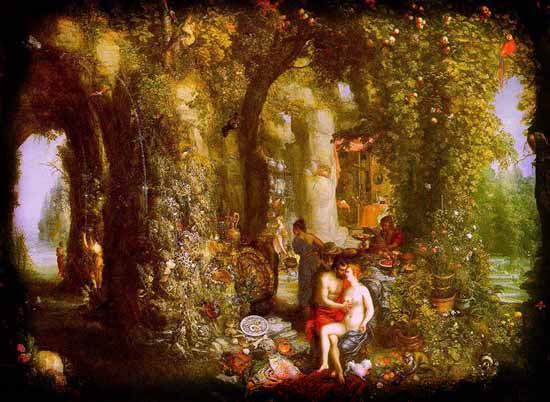

"...our genetically-enriched descendants are likely to view us as little better than psychopaths. For the role of key receptor sub-types of the 'civilising neurotransmitter' serotonin, the 'hormone of love' oxytocin, and the 'chocolate amphetamine' phenylethylamine, needs to be radically enhanced. When naturally loved-up and blissed-out on a richer cocktail of biochemicals than today, our post-human successors will be able, not just to love everyone, but to be perpetually in love with everyone as well.It's been said that when we're in love, we find it astonishing that it's possible to love someone else so much - because normally we love each other so little. This indifference, or at best diffuse benevolence, to the rest of the world's population is easily taken for granted in a competitive consumerist society - or on the plains of the harsh African savannah. Quasi-psychopathic callousness forms part of 'normal' archaic mental health. Yet our deficiencies in love are only another grim manifestation of selfish DNA. If humans had collectively shared the greater degree of genetic relatedness common to many of the social insects (haplodiploidy), then we might already 'naturally' be able to love each other with greater enthusiasm. Sociobiologists would then explain why we all loved each other so deeply, not so little.
Happily, in the future it will be possible to mimic, and then magnify out of all recognition, the kind of altruistic devotion to each other that might have arisen if were we all 100% genetically-related clones. Hints of a capacity for universal love can be glimpsed fleetingly today on the empathogen 'hug-drug' MDMA (Ecstasy). But loving each other to bits can also be genetically pre-programmed. It can become innate. For if the right sort of psychochemical cocktail is automatically triggered whenever anybody one knows is present or recollected, then we can combine absolute, unconditional and uninhibited love for each other with a celebration of the diversity of genes and cultures. At present this prospect may seem some way off...."
ABSTRACT
THE MOLECULAR BIOLOGY OF PARADISE
01 : 02 : 03 : 04 : 05 : 06 : 07 : 08 : 09 : 10 : 11 : 12 : 13
14 : 15 : 16 : 17 : 18 : 19 : 20 : 21 : 22 : 23 : 24 : 25 : 26
MDMA
HedWeb
Oxytocin
BLTC Research
Superhappiness?
Sensualism . com
Entactogens . com
Wirehead Hedonism
The Roots of Empathy
The Good Drug Guide
Utopian Pharmacology
The Abolitionist Project
The Hedonistic Imperative
MDMA ( Ecstasy ) : research
Critique of Huxley's Brave New World
Oxytocin, Addiction and Science of Love
ChatGPT on Empathy and Empathetic Euphoriants